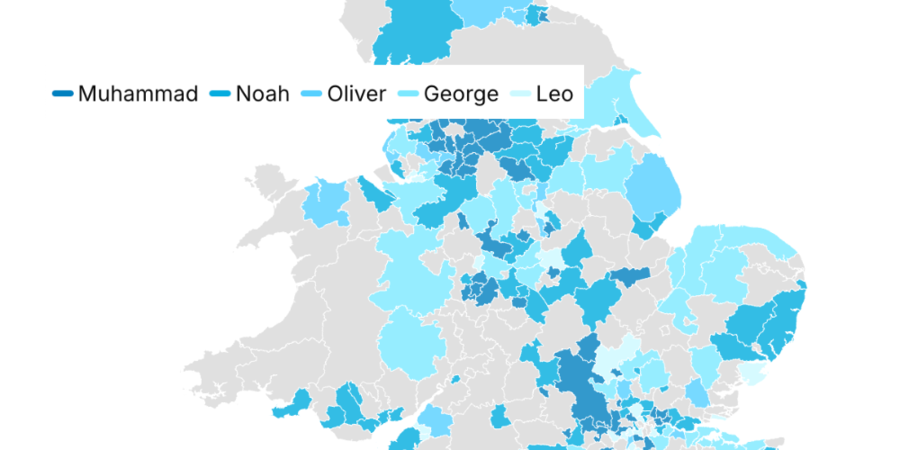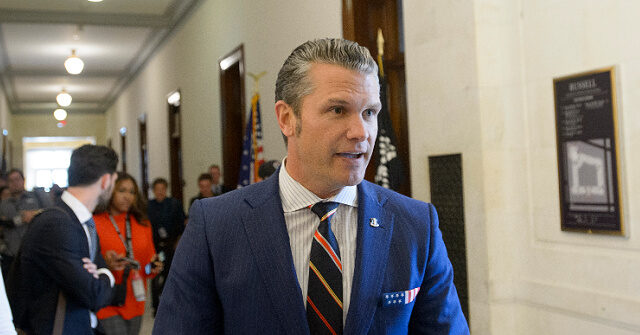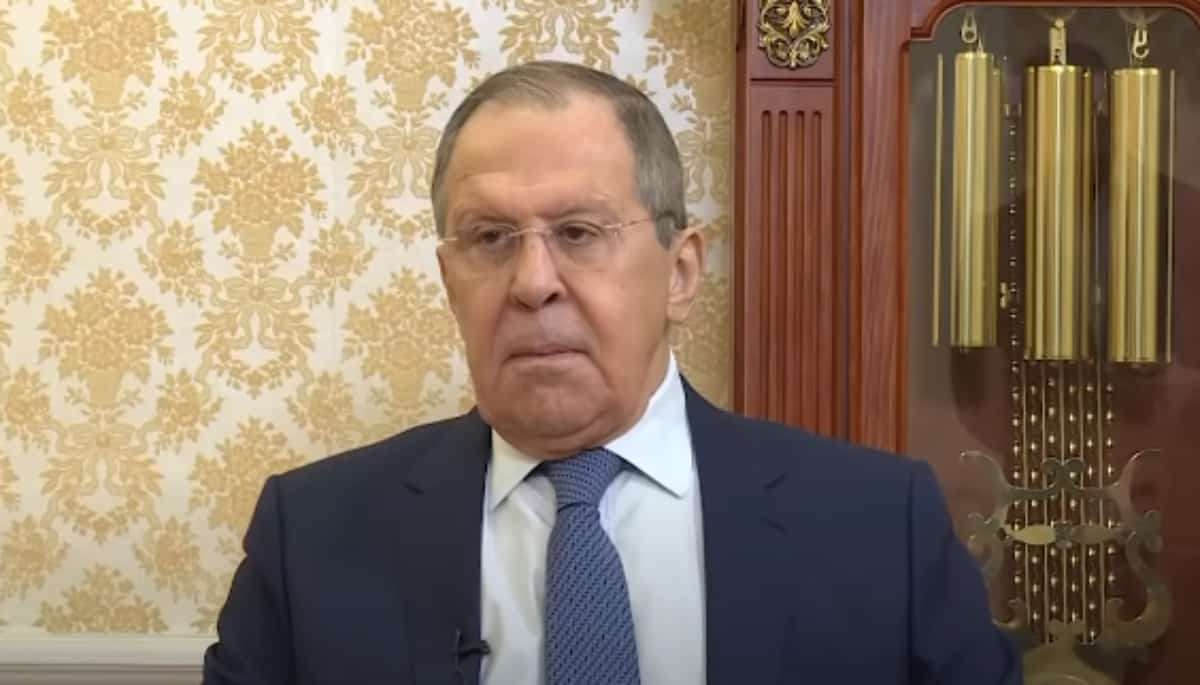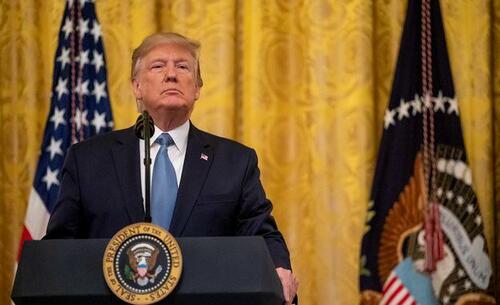Via the Issues & Insights Editorial Board,
If you’ve never heard the word “impoundment” before, you will – often – next year. And for good reason. Because this battle will determine whether government spending can ever be brought under control.
Last year, President-elect Donald Trump said that “For 200 years under our system of government, it was undisputed that the president had the constitutional power to stop unnecessary spending through what is known as impoundment.”
Since he’s been elected, he’s given every indication that he intends to reclaim this power. Indeed, the success of his “Department of Government Efficiency” run by Elon Musk and Vivek Ramaswamy depends heavily on Trump being able to spend less than Congress appropriates.
This, of course, has the left freaking out. The grumblers say that Trump’s refusing to spend money Congress has authorized would be “unprecedented” and “a devastating power grab” that would “flip the power of the purse” and give Trump “authoritarian control” over the government.
There are just two big problems with these assertions. The first is that presidential impoundment dates back to the very beginnings of the nation. The second is that letting presidents impound funds appears to have been an effective tool for keeping federal spending under control.
Impoundment is just a jargony word for instances where Congress appropriates a certain amount of money for a program in a given year, and the president refuses to spend all of it.
A research paper published by the Center for Renewing America (CRA) provides a long and detailed historical account of impoundment, including its roots in English law and its use by presidents – Democrats and Republicans – throughout the nation’s history.
Thomas Jefferson impounded funds. So did Madison, Buchanan, and Grant.
Herbert Hoover, the CRA paper notes, “vigorously employed the impoundment power to decrease government spending in the midst of the Great Depression.” FDR “refused to spend more than $500 million in public works funds on policy grounds.” Lyndon Johnson would “withhold appropriations that exceeded the president’s budget.”
Even Trump-hating CNN admits that impoundment “occurred frequently in U.S. history, beginning in 1803 when Thomas Jefferson declined to buy gunboats to patrol the Mississippi as he negotiated the Louisiana Purchase with France.”
While the Constitution forbids the president from spending more money than Congress has appropriated, there’s nothing in the Constitution that forbids the president from spending less.
And lo and behold, the nation survived and thrived for nearly 200 years while the president had this authority.
It wasn’t until 1974 that Congress stripped the president’s ability to impound funds. That year, lawmakers used the Watergate scandal and President Richard Nixon’s aggressive use of impoundment as an excuse to pass the Impoundment Control Act. The law also created the Congressional Budget Office and the budget committees in the House and Senate, and “reasserted Congress’ power of the purse,” according to Democrats on the House Budget Committee.
Well, what happened after Congress reasserted its power? Look at the two charts below.
The first shows annual budget deficits as a share of GDP. The second shows the national debt as a share of GDP.
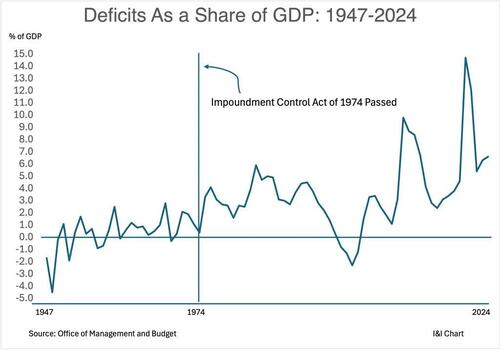
What do you see? In 1974, significant annual deficits became the norm. From 1947 to 1974, the federal deficit averaged 0.4% of GDP. Since 1974, deficits have averaged 3.8% of GDP. They’ve been close to 6% for President Joe Biden’s entire time in office. (Negative numbers in the chart are years when the government ran a surplus.)
The nation’s debt, which had been trending downward as World War II debts were paid off, suddenly stopped declining in 1974. It’s been climbing fairly steadily ever since.
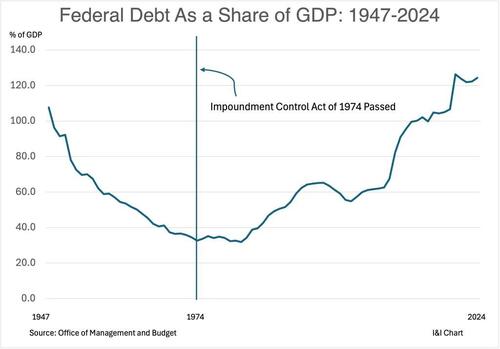
Trump is likely to challenge the Impoundment Control Act as unconstitutional. We hope he does, and that he succeeds, or at the very least forces Congress to fix that law.
Because letting Congress have unlimited authority to set a floor on spending has been a fiscal disaster.
— Written by the I&I Editorial Board
If you like what you see, feel free to visit our Donations Page by clicking here. And be sure to tell your friends!




